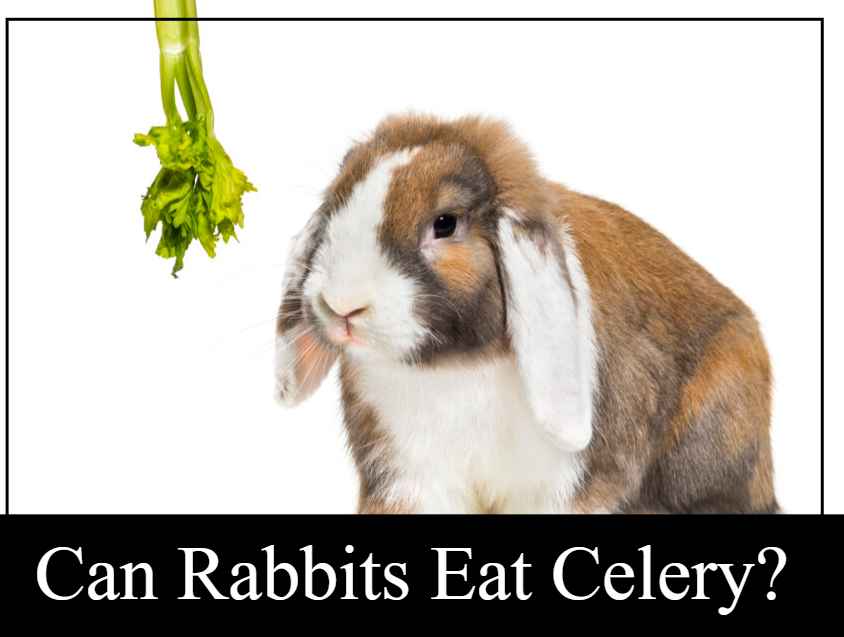As for celery, rabbits can eat it, but it should be a very small percentage of their daily diet, as well as chopped up in small pieces.
Rabbits should eat hay (dried grass) as well as vegetables and pellets as supplements to their diet.
Let’s delve into celery a little deeper and see how it fits into a rabbit’s diet.
Table of Contents:
What is Celery?
Before we learn how to feed rabbits celery, let’s first understand what celery is, so we will have a better understanding of its benefits and cons.
Celeriac belongs to the group Apiaceae (along with carrots and parsley). Raw or cooked, the fibrous stalk and leaves of this plant can be eaten by rabbits and humans alike.
Celery is full of water and has a savory taste. However, celery has a high sugar content which makes it a favorite food for rabbits.
Celery Is Beneficial To Rabbits
The benefits of feeding rabbits celery (other than taste) are several.
The first vitamin, mineral, and nutrient found in celery is calcium. Celery also contains fiber, folate, folic acid, zinc, iron, magnesium, phosphorous, potassium, zinc, several B vitamins, vitamin C, and vitamin E.
Celery, due to its crunchy texture and difficulty in chewing, keeps rabbits’ teeth healthy as well.
Is it true that rabbits’ teeth grow forever?
It means that if left unchecked, their teeth can grow right into their mouth and gums. They can suffer tremendously from this.
A Disadvantage To Rabbits Of Celery
Celery is generally considered safe for rabbits, but there are some cons that need to be considered.
There’s one in particular that is dangerous: celery strings.
In addition to getting stuck in a rabbit’s stomach and causing blockages (which may seem minor, but is actually fatal) celery strings can even get stuck in the rabbit’s teeth and cause infections.
Your rabbit should not catch on celery if it’s cut into small pieces.
Celery can also upset your stomach, which is a con. Many people think rabbits can eat anything because they are natural foragers. That’s not true.
The stomach of rabbits is sensitive and easily upset by new foods, too many vegetables, and too much sugar. You can prevent this by introducing new foods (especially vegetables) slow and in small amounts. The stomach is not happy if they have soft or watery stool (poo).
Celery has one final drawback for rabbits is sugar. Moreover Celery is considered a health food for humans (and it’s sugar content is considered modest), but for rabbits, it is high in sugar , making it more of a treat than a daily meal.
Celery sticks should not exceed 12 per day for rabbits.
Can Rabbits Eat Celery – Short Summary
A string celery can cause blockages in rabbits’ teeth and upset their stomachs, and celery has a high sugar content. Celery also contains many vitamins, minerals, and nutrients that keep rabbits’ teeth healthy.
GI stasis is when the digestive tract ceases to function (this happens when the digestive tract is either slowed down or completely stopped) because rabbits do not have constant stomach movement (peristalsis). Rabbits can die as a result.
Several vegetables and pellets, along with hay, should be included in a rabbit’s diet to prevent this. The consumption of starchy vegetables, fruit, seeds, and nuts (or any “treats”) should be restricted.
To that end, rabbits should be offered as much hay as they want, as well as a daily salad (consisting mostly of dark green leafy vegetables), some pellets, and occasional treats.
You should limit your rabbit’s intake of celery, and we recommend that you feed it no more than 12 celery sticks a day (and that you cut it into one-inch pieces).
